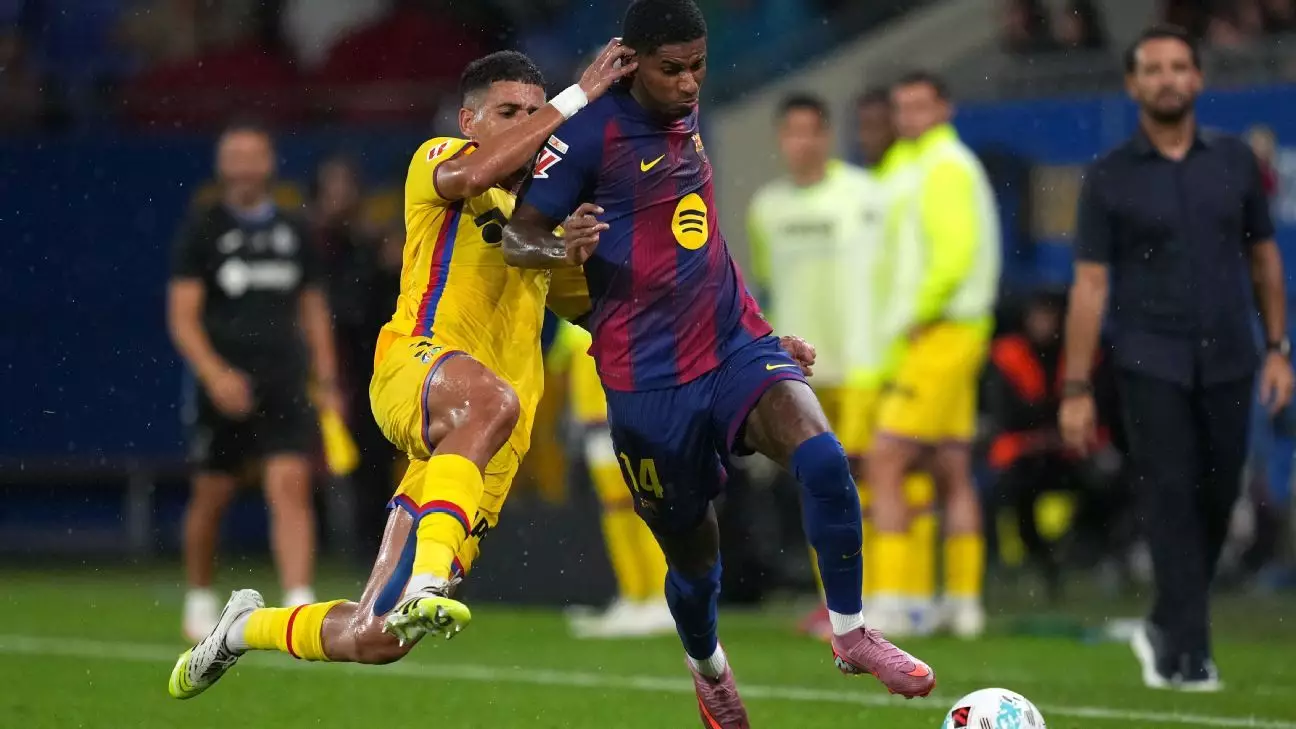In the high-stakes world of professional football, decisions such as benching a star player are often scrutinized far beyond their immediate context. Recent events involving Marcus Rashford’s exclusion from Barcelona’s starting lineup epitomize this phenomenon. Though initially cascaded as a disciplinary issue stemming from arriving late for a team activation session, deeper analysis suggests that such decisions are rooted in the complex calculus of tactical freshness, team dynamics, and strategic planning.
It’s tempting to view Rashford’s benching as a commentary on discipline, but this oversimplification neglects the nuanced realities coaches face. Hansi Flick emphasized the importance of player rotation and maintaining physical readiness, asserting that the team’s fresh legs are crucial in a congested fixture schedule. Therefore, the focus shifts from penalizing individual lapses to optimizing overall team performance—a principle often misunderstood by fans eager for straightforward moral judgments. This approach underscores that decision-making in top-tier sports is less about punishment and more about strategic resource allocation, designed to balance immediate impact with sustained performance.
Leadership and Discipline: The Power and Pitfalls of Strict Policies
Flick’s zero-tolerance stance on lateness exemplifies leadership rooted in discipline, yet it also exposes the fine line between effective management and inflexibility. In the era where player autonomy is highly valued, maintaining such strict standards can either foster respect or breed resentment.
Interestingly, reports specify that Rashford’s late arrival was marginal, and insiders suggest it was unlikely to be the sole factor behind his absence. This signals that coaches often weigh multiple considerations—physical condition, tactical matchups, and psychological readiness—rather than fixingate solely on punctuality. However, the public display of strictness serves as a tough-love signal, reinforcing accountability across the squad. Still, there is inherent danger: overemphasizing discipline can undermine trust, especially if players perceive decisions as inconsistent or excessively punitive.
Lessons from Flick’s management highlight that leadership effectiveness in sports hinges not only on rules but also on the contextual judiciousness in applying them. Winning teams often succeed not solely because of their tactical prowess but due to leadership that inspires discipline without suppressing individuality—a balancing act that is far easier to romanticize than execute.
The Subtle Art of Player Impact and Game Strategy
When Rashford entered as a substitute, he demonstrated his undeniable influence by setting up the third goal, reaffirming the inherent value of bench players who can change a game. This underscores a vital truth in football: squad depth and tactical flexibility are just as crucial as the starting XI.
Beyond individual contributions, Flick’s comments point to a broader strategic philosophy—prioritizing each game’s specific demands rather than rigidly sticking to a set lineup. The win, achieved in challenging weather conditions against a disciplined Getafe side, validates this approach. It also draws attention to how coaches must constantly adapt, weighing the energy expenditure of players and the tactical needs of each match.
Barcelona’s victory also illuminates the importance of mental resilience among substitutes, who must stay prepared for their moment on the pitch. Rashford’s impactful cameo underscores that being benched isn’t necessarily a setback but a tactical choice that supports the team’s overall success.
The Underlying Currents of Club Politics and Media Narratives
What remains often underplayed is the influence of club politics and media narratives in shaping the perception of these decisions. The notion of Rashford being “benched after lateness” quickly garnered headlines, fueling debates about discipline and favoritism. Yet, deeper insights reveal that clubs operate within a web of relationships, tradition, and strategic interests.
The media’s focus on individual lapses tends to distort the broader picture—one of tactical nuance and ongoing squad management. Meanwhile, club officials may adopt a stance of downplaying issues publicly, preserving morale and unity while subtly reinforcing standards privately. Such dynamics underline the importance of understanding that football, at its highest level, is a complex ecosystem where every decision is calibrated to sustain competitive edge and team cohesion.
These seemingly straightforward decisions—benching a star, enforcing discipline—are in fact complex maneuvers rooted in leadership philosophy, tactical foresight, and the intricate psychology of team dynamics. By critically examining these layers, we gain a richer understanding of what truly drives success in elite football.

